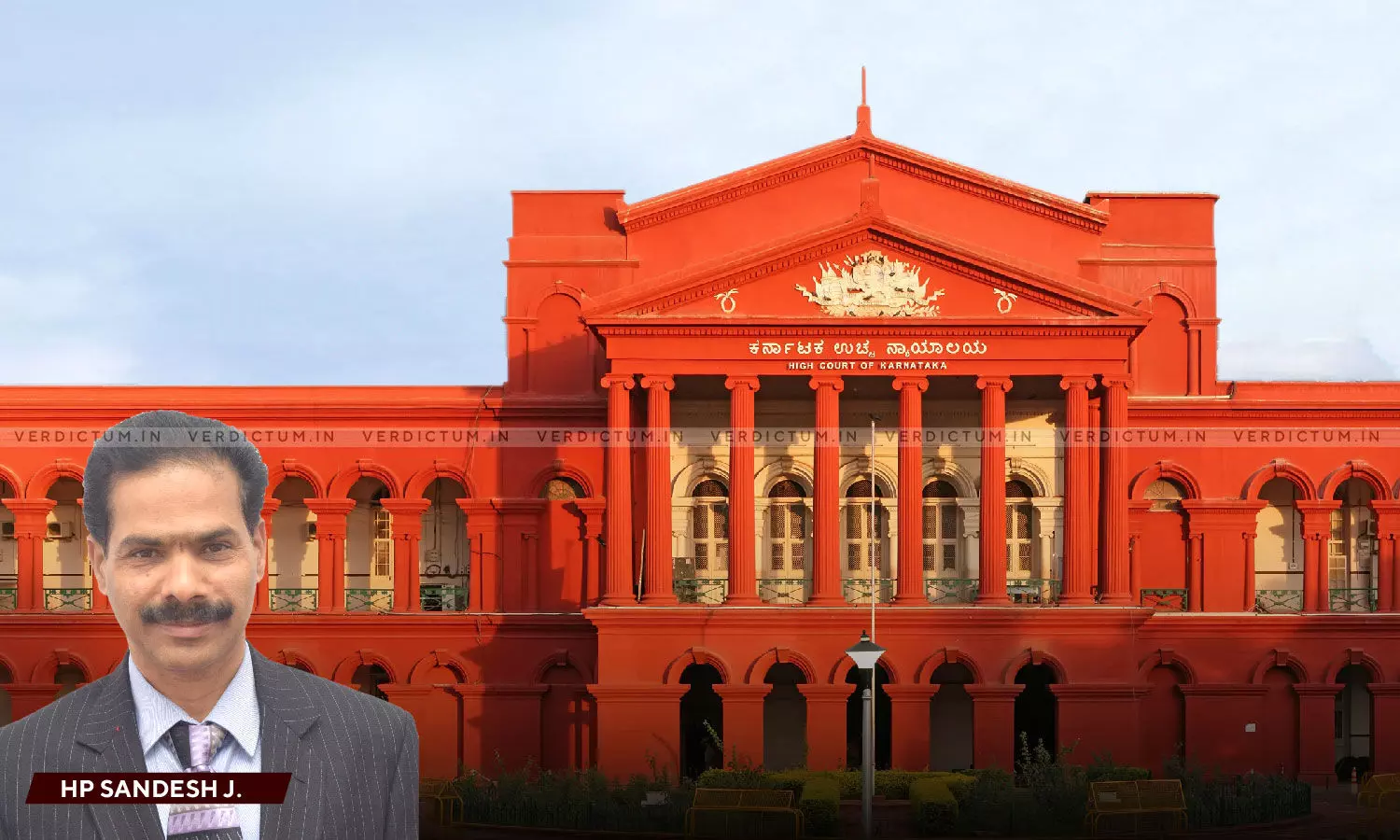
Exonerating Employee In Departmental Enquiry Does Not Come In Way Of Continuing Criminal Trial Against Him: Karnataka HC
 |
|The Karnataka High Court elucidated that exonerating an employee in Departmental Enquiry does not come in the way of continuing the trial against him.
The Court was deciding two criminal revision petitions challenging the order of the Trial Court which allowed the discharge application of the accused and gave liberty to proceed further in accordance with law and to file chargesheet afresh after obtaining necessary sanction from the Competent Authority.
A Single Bench of Justice H.P. Sandesh observed, “When the criminal misconduct has been alleged against a Government employee who is discharging the duty as a public servant, demanded the amount illegally and raid was conducted and material discloses regarding demand and acceptance of the same, it needs trial and even exonerating him in Departmental Enquiry will not come in the way of continuing the trial against the petitioner/accused No1.”
Advocate Prasad B.S. appeared on behalf of the petitioner while Advocate Vijay Kumar V.B. appeared on behalf of the respondents.
Factual Background -
The complainant was working as a Supervisor in a company operating many vehicles including tippers. The accused no. 1 was working as a Senior Inspector of Motor Vehicles at RTO Office and he used to allegedly threaten the drivers of tipper vehicles that he would seize the vehicles if they do not pay him periodical bribe. Since the complainant was not inclined to pay the bribe amount, he gave written information to the Lokayukta Inspector who arranged for the trap.
The said Inspector secured two independent witnesses who were Government servants and in their presence, conducted pre-trap proceedings. The accused no. 1 was trapped while demanding and accepting illegal gratification of Rs. 15,000/- from the complainant through accused no. 2 – a private person who allegedly received the amount at the instance of first accused. Hence, chargesheet was filed against both the accused persons for the offence punishable under Sections 7, 8, 13(1)(d) read with 13 (2) of the Prevention of Corruption Act, 1988 (PC Act).
The High Court in the above context of the case noted, “The counsel in support of his arguments also relies upon the judgment of the Apex Court reported in (2020) 9 SCC 636 in the case of ASHOO SURENDRANATH TEWARI vs DEPUTY SUPERINTENDENT OF POLICE, EOW, CBI AND ANOTHER and brought to notice of this Court in paragraph 8 wherein the Apex Court held that the standard of proof in a departmental proceeding, being based on preponderance of probability is somewhat lower than the standard of proof in a criminal proceeding where the case has to be proved beyond reasonable doubt.”
The Court further noted that in the case, departmental enquiry is different with regard to misconduct but there is a criminal misconduct making demand and acceptance of bribe amount.
“Hence, having considered the material available on record, it needs to comes to the conclusion that the principles laid down in the case of ASHOO SURENDRANATH TEWARI is not applicable to the facts of the case on hand when there is an evidence of conversation with regard to demand and acceptance of bribe amount of Rs.15,000/- through accused No.2”, it said.
The Court observed that even though, questioning of giving liberty to proceed further against the accused no.1, no grounds are made out even for setting aside the order of giving liberty to proceed against him in accordance with law.
“I have already pointed out that the question of giving liberty also does not arise when sanction is accorded by the Competent Authority in terms of the Notification dated 11.02.2010 which has been extracted above which confers on the Transport Commissioner to accord the sanction in view of the order of the Government. Hence, the order impugned is liable to be set aside and the Trial Court has to proceed further against the accused Nos.1 and 2 in accordance with law”, it concluded.
Accordingly, the High Court allowed the petition of Lokayukta, set aside the impugned order, and dismissed the petition of the accused.
Cause Title- State by Karnataka Lokayukta Police v. T. Manjunath & Anr.